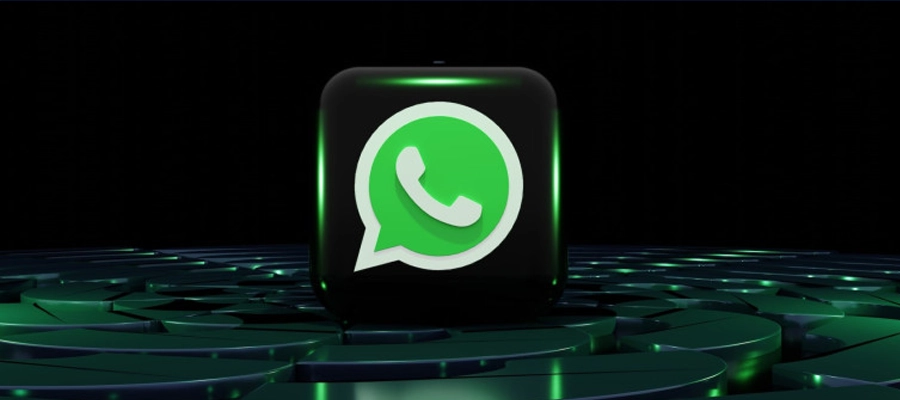Introduction
WhatsApp has become a ubiquitous messaging platform, with millions of users worldwide relying on it for personal and professional communication. With the legal system having already embraced technology and digital transformation to streamline their processes and enhance accessibility and electronic filing systems, digital signatures, and online platforms for case management, it has now also started accepting WhatsApp as a tool to enhance client communication and flow of information. Courts in India have also started accepting service of documents sent through WhatsApp to be valid service in certain situations.
Here is an analysis of accepting WhatsApp as a valid platform for service:
- Proof of Delivery
One of the primary requirements for accepting WhatsApp documents as valid court service is the ability to prove delivery. Traditionally, a clear paper trail was created through registered mail or in-person delivery to demonstrate that the documents were received by the intended recipient. With WhatsApp, the challenge lies in establishing irrefutable evidence of delivery.
- Acknowledgment and Read Receipts
WhatsApp offers features like read receipts and acknowledgment indicators, which can serve as evidence of delivery and receipt of documents. When a recipient opens and reads a message, the sender can receive a read receipt, providing a timestamp as proof of delivery. Additionally, if the recipient acknowledges receiving the message or responds to it, it further strengthens the case for the validity of WhatsApp documents as court service.
- Authentication and Integrity
Courts place a high value on document authenticity and integrity. When considering WhatsApp documents as valid court service, it becomes crucial to establish the authenticity of the sender and the integrity of the document. Verification mechanisms, such as digital signatures or encryption, can help ensure that the documents have not been tampered with and that they originate from the identified sender. Confidentiality of documents and service is another concern faced by courts, however, WhatsApp claims to incorporate end-to-end encryption.
- Legal Framework and Precedents
Courts in India have explicitly started recognizing WhatsApp as a valid platform of communication and service of documents related to court proceedings. However, burden of proof of service lies entirely on the party claiming service to have been completed through WhatsApp.
- Cost-Effective Solution
Adopting WhatsApp as a communication tool can be a cost-effective solution for legal service providers and helps reduce wastage of paper.
- Instances where courts have accepted service done via WhatsApp to be valid
- The Delhi High Court set a precedent in 2017 in Tata Sons Limited & Ors Vs John Does, by allowing service of summons through WhatsApp after the Defendants evaded service though regular modes.
- Thereafter, in SBI Cards and Payments Services Pvt Ltd Versus Rohidas Jadhav, the Bombay High Court accepted the service of notice in an execution application after finding that the PDF file containing the notice had not only been served but the attachment had also been opened by the opposite party. Justice G.S. Patel observed that “For the purposes of service of Notice under Order XXI Rule 22, I will accept this. I do so because the icon indicators clearly show that not only was the message and its attachment delivered to the Respondent’s number but that both were opened.
- Justice G.S. Patel at Bombay High Court in Kross Television India Pvt Ltd & Anr Vs. Vikhyat Chitra Production & Ors. has also held that the purpose of service is to put the other party to notice. Where an alternative mode (email and WhatsApp) is used and service is shown to be effected and acknowledged, it cannot be suggested that there was ‘no notice’.
- The Rohini Civil Court at Delhi in a case has also accepted the blue double-tick sign in a WhatsApp message as valid proof that the message’s recipients had seen a case-related notice.
Conclusion
As the Supreme Court is yet to lay down a precedent or ruling accepting Whatsapp as valid medium of service. The acceptance of WhatsApp documents as valid court service is a complex issue that requires careful consideration of factors such as proof of delivery, acknowledgment, authentication, and adherence to legal frameworks. As the Indian courts continue to navigate the digital landscape and embrace technology, it is essential for legal professionals, lawmakers, and technology providers to work together to establish clear guidelines and standards that safeguard the integrity of court proceedings while embracing the efficiencies offered by modern communication platforms like WhatsApp. The courts incorporating WhatsApp as part of the legal service workflow demonstrates the industry’s commitment to adapting to the evolving needs of clients in an increasingly digital world.

